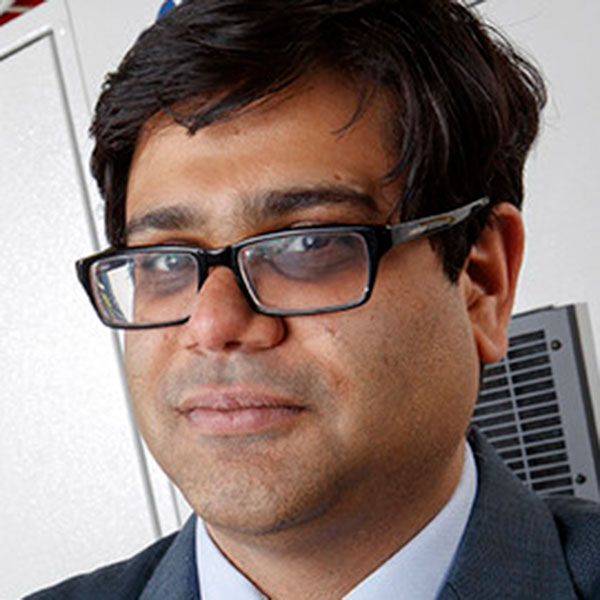Calendar Icon
Apr 17, 2018
![]() RSS
Submit a Story
RSS
Submit a Story

RELATED LINKS
University of Nebraska–Lincoln engineer Prahalada Rao has high expectations for 3-D printing: no less than revolutionizing the world, in fact. Before that can happen, the process — already used to create many items from toys to car parts — must overcome a tendency to create flaws in the final product.
"People call it 'print and go'; I call it 'print and pray,'" said Rao, assistant professor of mechanical and materials engineering.
Three-dimensional printing transforms designs into parts more quickly and with less waste and expense than current technology. But its significant failure rate makes it infeasible to mass-produce airplane turbines or replacement knees, for example, where safety is paramount, he said. Using X-ray scans to ensure the final product is free of defects is time-consuming, expensive and limited by size.
Rao earned a five-year, $500,000 Faculty Early Career Development Program award from the National Science Foundation to develop a 3-D printing process, officially known as smart additive manufacturing, that produces flawless metal parts every time. SEE NEAT LABS
Submit a Story